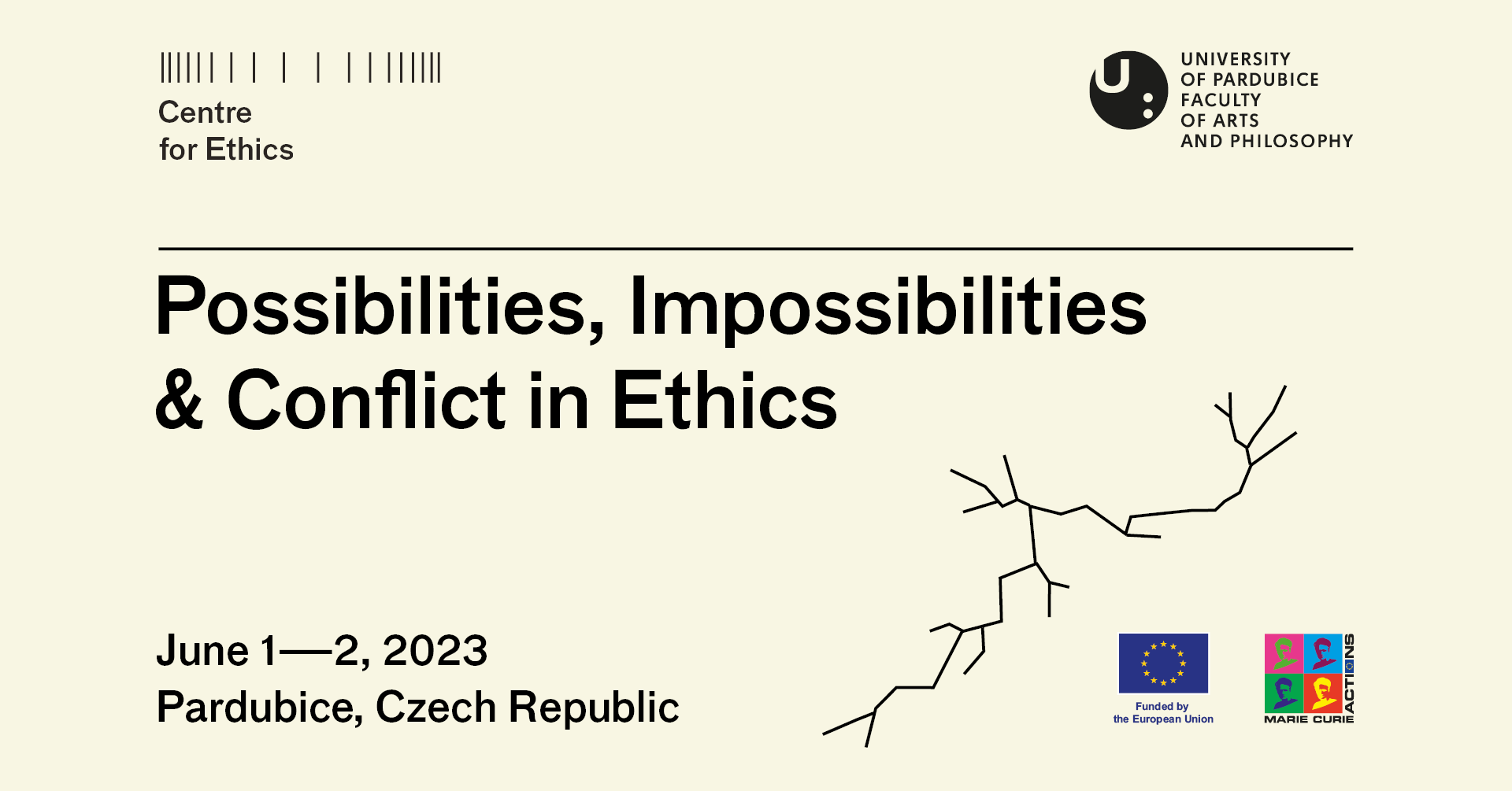Possibilities, Impossibilities & Conflict in Ethics
International conference funded by the MSCA project MIGHT (‘Moral Impossibility: Rethinking Choice and Conflict’) and hosted by the Centre for Ethics as Study in Human Value, University of Pardubice
Date: 1-2 June 2023
Conference Venue: The historical building of the University of Pardubice, Room 03004 (nám. Čs. legií 565, 530 02 Pardubice I), Pardubice, Czech Republic
Keynote speakers:
Alice Crary (The New School for Social Research)
Raimond Gaita (Melbourne University) [online]
Sophie Grace Chappell (Open University) [online]
Gabriel Abend (University of Lucerne)
with a guest lecture by Aviad Heifetz (The Open University of Israel)
You can find conference programme and abstracts here.
Registration is free but required for attendance due to venue capacity. For information and registration, please email: silvia.capriogliopanizza@upce.cz
Conference description
Moral choices always occur among a limited number of possibilities. While a lot of thought has gone into understanding how the best or better option is selected and realised, little has been said about how possibilities are delimited, which ones are excluded and why, and how we come to ‘see’ the possibilities that we see – all of which, however unconscious or neglected, determines every choice and action.
While empirical and sometimes logical limits to ethical possibilities are relatively clear (often in the form of the ‘ought implies can’ principle), this conference aims to explore the moral limits to possibilities. Morality, in other words, is at work not only in choosing the best course of action, but also in limiting the possibilities among which we can - morally - choose. Some of these limits, for their very nature, will never be known. Sometimes these limits are unconscious. Sometimes we are aware of possibilities, yet cannot take them as actual possibilities for ourselves. These limits have been observed, in various ways, by philosophers such as Bernard Williams (moral incapacity), Cora Diamond (the difficulty of reality), John McDowell (virtue as silencing certain options), Raimond Gaita (unthinkability), Tamar Szabó Gendler (imaginative resistance), and others.
This conference brings together theoretical work on the nature and scope of moral limits to possibility, and applied work on how acknowledging such limits, and their variability among individuals, groups, and cultures, can help understand moral conflict and disagreement. Hence, both theoretical papers and papers that examine concrete case studies or examples from significant contemporary issues are welcome. We also welcome interdisciplinary papers as well as individual contributions from different disciplines (philosophy, political theory, psychology, sociology, anthropology, literature, etc.).
************************************************************************
This conference is part of the Marie Skłodowska-Curie Individual Fellowship Project 2020 "Moral Impossibility: Rethinking Choice and Conflict (MIGHT).
This project has received funding from the European Union’s Horizon 2020 research and innovation programme under the Marie Sklodowska-Curie grant agreement No 101026701.

